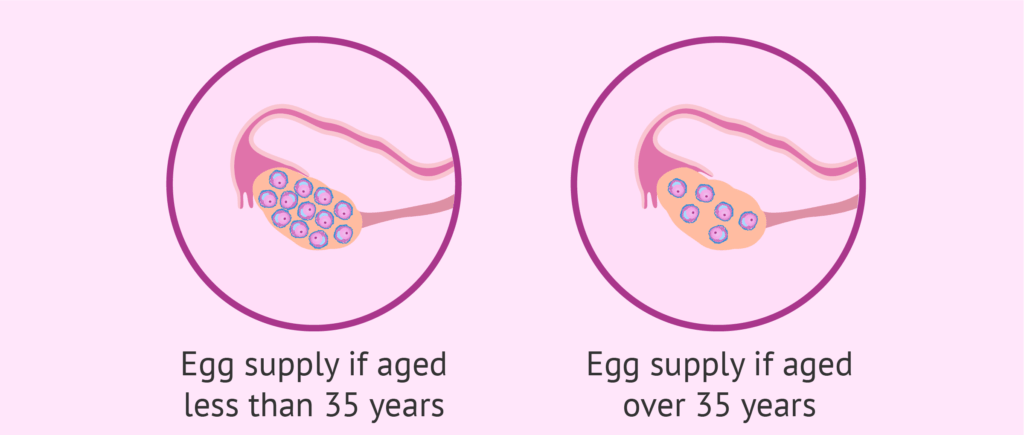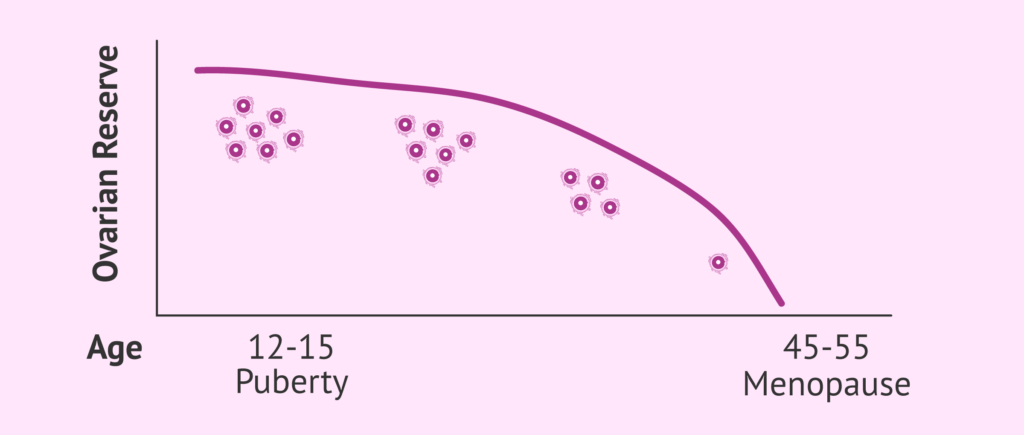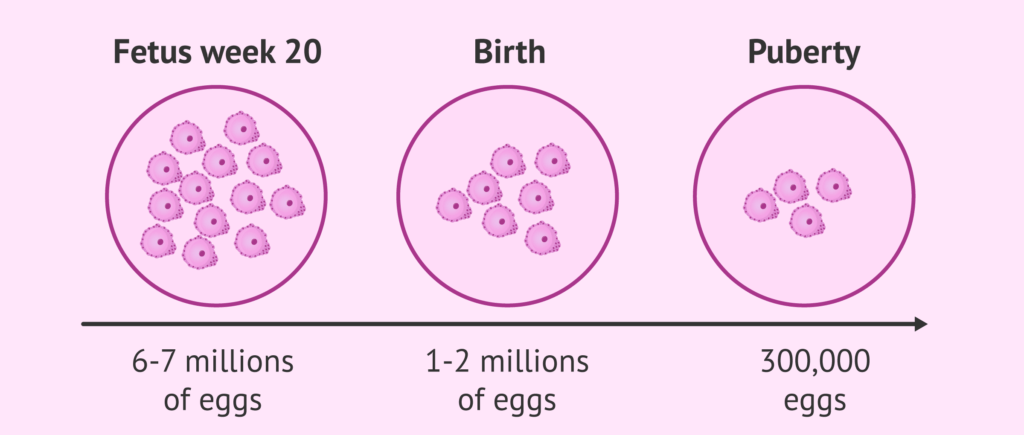Ovarian reserve refers to the number and quality of a woman’s remaining eggs (ova) in her ovaries at a given point in time. It is an important concept in reproductive health and fertility, as it directly affects a woman’s ability to conceive and have a healthy pregnancy. Here are a few key points to describe ovarian reserve:
Fertility Indicator
Ovarian reserve is a crucial indicator of a woman’s reproductive potential. It provides insight into her chances of getting pregnant naturally or through assisted reproductive techniques like in vitro fertilization (IVF).

Decline with Age
Ovarian reserve decreases as a woman gets older. Women are born with a finite number of eggs, and as they age, the quantity and quality of these eggs decrease. This decline accelerates after the age of 35.

Measuring Ovarian Reserve
- Blood tests for hormones like anti-Müllerian hormone (AMH)
- Follicle-stimulating hormone (FSH)
- Transvaginal ultrasound to count the number of antral follicles (small fluid-filled sacs in the ovaries)
Family Planning
Knowledge of ovarian reserve can be valuable for women planning to have children in the future. If ovarian reserve is low, they may consider options like egg freezing to preserve their fertility.
Ovarian reserve is a critical concept in reproductive health, representing the number and quality of a woman’s remaining eggs. It plays a significant role in a woman’s ability to conceive and have a healthy pregnancy, and it can be assessed through various medical tests.
Please call on +91 9962777777 to schedule a consultation.

Dr B.Priya Kalyani
MBBS., DGO, DNB (OG)
Senior Consultant Obstetrician & Gynaecologist

